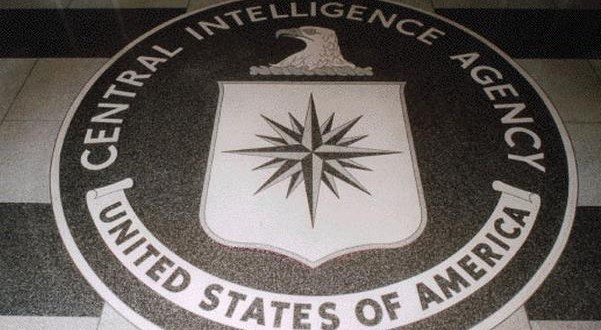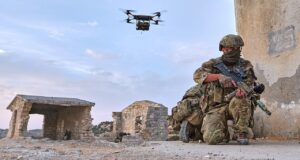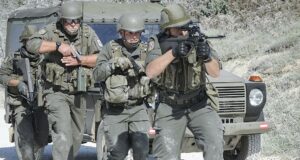Analysis Stage
This same antinomy obviously also affected the intelligence cycle at the analysis stage. Analysts in the CIA, FBI and other US intelligence services are likely to have suffered from information overload due to a misallocation or lack of analytical resources and also because collectors had no sensitivity to the analysts’ requirements. When there is information coming in from as many sources as there are feeding into the American intelligence community, one must be discriminating about which information is shared, or else an overload will result.
This was particularly so with the FBI, whose analytical resources were evidently incorrectly allocated in order to fulfil their primary role of analysis. Pulcrano points out that “September’s intelligence failure stemmed not from the inability to collect data, but from law enforcement’s [the FBI’s] inability to analyze and act on information already in hand[21].” Analysts were treated as “second class citizens, non-essential employees who could be transferred away from strategic analysis to do just about anything… including…emptying the trash[22].” As such, whilst there may or may not have been a sufficient number of analysts, there were not enough actually conducting strategic analysis, and the ones that were were overloaded and had no way of communicating their needs to intelligence collectors. Without these communication channels, analysts are also unaware of the sources that could be available to them. As Bobbitt notes:
“We must be able to achieve greater intimacy between analysts and collectors. Only then can collectors explain the availability and quality of sources and analysts can ask for missing pieces. Collection will be more fruitful and the intelligence product more discriminating.[23]”
The FBI was not the only institution to suffer from information overload. The National Security Agency (NSA), responsible primarily for sigint intercepted two messages on 10th September 10th 2001 saying “the match begins tomorrow[24]” and “tomorrow is zero hour[25]”. However, due to an analytical backlog, this was not even translated until 12th September[26]; it was too late for this last-minute warning to be of any use, even though it was already inside the intelligence community.
Intelligence Dissemination Stage
The weakest part of the entire intelligence cycle in the US at the time of the 9/11 attacks was the dissemination stage. Here, most of the antinomies inhibited the smooth action of the entire intelligence process.
As explained above, the separation between domestic and international intelligence gathering caused immense issues, with a lack of information sharing and, in some cases ‘institutional warfare[27]’ between the CIA, FBI, NSA and other agencies. A failure to share information appropriately impacts the dissemination stage in the same way as it impacts the collection stage: if either with further investigations and collection, or with political action.
The most impactful antinomy affecting the dissemination stage was the disconnect between the intelligence producer and the intelligence consumer. With the two almost completely separated except to ask for and receive the final intelligence product, producers and consumers fail to understand each others’ positions and tend to get in each others’ way. An example of this is when a White house official under the Clinton administration, when pressed by very forthright figures in the media, revealed that the USA had been listening in to Osama Bin Laden’s satellite phone calls. After this was reported in the Washington Times, this means of communication was abandoned by the al Qaeda leadership[28]. It is possible, had this leak not occurred that this would have remained a viable and vital source of intelligence in 2001 and could have yielded information which could have been used to intercept the hijackers.
Equally, the separation of intelligence producer and consumer leads to intelligence being produced which is of little use to policy makers. An example of this with reference to 9/11 would be the Presidential Daily Briefing of 6th August 2001. In this, a report entitled “Bin Laden Determined to Strike in US[29]” was filled with “unimportant information, false reassurances, [and] wrong information[30]”. It also “failed to include the best intelligence available about al-Qaeda operatives in the United States—information that might have made a difference[31].”
The conventional wisdom holds that too close a relationship between intelligence producers and consumers opens the door for intelligence politicisation: politicians managing the intelligence processes to get the conclusions most expedient for them. However, with producers and consumers sequestered away from one another there is then a two-way street of toe-treading and frustration. Producers offer intelligence products which do not inform their political masters sufficiently for them to take appropriate and necessary action; intelligence consumers in the executive branch, often under intense pressure from the media and the other branches of government make slip ups as detailed above which hamper their intelligence agencies.
Conclusion
To conclude, the issues which prevented 9/11 from being precluded by American intelligence went further than simple human error. The very structures and procedures within the intelligence community were counterproductive and caused the very intelligence process itself to break down at each and every stage of the intelligence cycle. This, in conjunction with an effective counterintelligence effort made by al Qaeda, ensured that the only way 9/11 could have been avoided would have been through sheer serendipity.
Not only that, but many of the serious issues that contributed to this massive intelligence failure remain unfixed. The bipartisan ‘Status of the 9/11 Commission Recommendations’ report[32], notes that:
“It still is not clear, however, that the DNI [Director of National Intelligence] is the driving force for intelligence community integration that we had envisioned. Some ambiguity appears to remain with respect to the DNI’s authority over budget and personnel.[33]”
Former chief planner for the DNI, Patrick Neary remarked that the intelligence community remained ‘fundamentally unreformed[34]’ when Barack Obama took office in 2008. One retired CIA official declared that the US Government had treated the 9/11 Commission’s recommendations like “a flaming bag of dog poo.[35]” The position of DNI has been described as ‘a figurehead position with little authority.[36]’ An investigation by the Washington Post concluded that the office of DNI “wouldn’t have power over the individual agencies [it] was supposed to control[37].”This could explain why, rather worryingly, there have been five different DNIs in the seven years since the office was created[38]. With this in mind, questions should be raised not only about whether 9/11 was avoidable in 2001, but whether it is even avoidable in 2012.
The institutional inertia in the intelligence community, which prevented it from even perceiving the structural and procedural problems within it, could only have been overcome by a shock to the system such as 9/11. Consequently, whilst it would have been conceptually and practically possible to avoid the catastrophic strategic surprise of 9/11, the culture and the politics within the executive branch and intelligence community ensured that enough opportunities were missed that 9/11 was effectively inevitable from an intelligence perspective.
Simon Schofield is contactable at:
Simon.Schofield@hscentre.org
Please cite this article as:
Schofield, S. (2013). ‘From an Intelligence Perspective, was 9/11 Avoidable?’
Human Security Centre, Defence and Security, Issue 3, No. 4.
References
[1] Bobbitt, P. (2008) Terror and Consent: The Wars for the Twenty-First Century, (Penguin, New York), pp. 290
[2] ibid
[3] Ibid, pp. 296-297
[4] Gaetano Joe Ilardi (2009) ‘The 9/11 Attacks—A Study of Al Qaeda’s Use of
Intelligence and Counterintelligence’, Studies in Conflict & Terrorism, Vol. 32, No. 3, pp. 171-187
[5] Federal Bureau of Investigation (2000) ‘The USS Cole Bombing’, available on: http://www.fbi.gov/about-us/history/famous-cases/uss-cole (accessed 25/11/2012)
[6] Federal Bureau of Investigation (2003) ‘The War on Terror: Remembering the Losses of KENBOM/TANBOM’, available on: http://www.fbi.gov/news/stories/2003/august/kenbom_080603 (accessed 25/11/2012)
[7] Goodman, A. (2003) ‘9/11: The Failure of Strategic Intelligence’, Intelligence and National Security, Vol. 18, No. 4, pp. 59-71
[8] 9/11 report pp 256
[9] Zegart, A. (2007): ‘9/11 and the FBI: The organizational roots of failure’, Intelligence and National Security, Vol. 22, No. 2, pp. 165-184
[10] Ibid
[11] 9/11 commission 78-79
[12] Ibid 78
[13] Ibid 79
[14] ibid
[15] Zegart, A. (2007): ‘9/11 and the FBI: The organizational roots of failure’, Intelligence and National Security, Vol. 22, No. 2
[16] ibid
[17] 9/11 report pp. 272
[18] 9/11 report pp. 267-269
[19] Ibid pp. 269
[20] Rolington, A. (2006) ‘Objective Intelligence or Plausible Denial: An Open Source Review of the Intelligence Method and Process Since 9/11’, Intelligence and National Security, Vol. 21, No. 5 pp 738-759
[21] Pulcrano, D. (2001) ‘The Case for Smart Intelligence’, AlterNet, available on: http://www.alternet.org/story/11781/the_case_for_smart_intelligence/ (accessed 26/11/2012)
[22] Zegart, A. (2007): ‘9/11 and the FBI: The organizational roots of failure’, Intelligence and National Security, Vol. 22, No. 2
[23] Terror and consent pp. 315
[24] Derksen, K. (2005) ‘Commentary – The Logistics of Actionable Intelligence Leading to 9/11’, Studies in Conflict & Terrorism, Vol. 28, No. 3 pp. 253-268
[25] ibid
[26] ibid
[27] Wright, L. (2006) The Looming Tower: Al-Qaeda’s Road to 9/11, (Penguin, London) pp. 242
[28] 9/11 report pp. 127
[29] Zegart, A. (2007) ‘‘‘CNN with Secrets:’’ 9/11, the CIA, and the Organizational Roots of Failure’, International Journal of Intelligence and Counterintelligence, Vol. 20, No. 1, pp. 18-49
[30] ibid
[31] ibid
[32] National Security Preparedness Group (2011) Tenth Anniversary Report Card – Status of the 9/11 Commission Recommendations, Bipartisan Policy Center, pp. 17 available on: http://bipartisanpolicy.org/sites/default/files/CommissionRecommendations.pdf (accessed 27/11/2012)
[33] Ibid, pp. 17
[34] Aid, M. (2012) Intel Wars: the secret history of the fight against terror, (Bloomsbury Press, New York) pp. 60
[35] Ibid pp. 61
[36] Ibid
[37] Priest, D. and Arkin, W. (2010) ‘A Hidden World, Growing Beyond Control’, The Washington Post, available on: http://www.aef.org/edOp/2010/Washington_Post_Intelligence_Series.pdf (accessed 27/11/2012)
[38] National Security Preparedness Group (2011) Tenth Anniversary Report Card – Status of the 9/11 Commission Recommendations, Bipartisan Policy Center, pp. 17 available on: http://bipartisanpolicy.org/sites/default/files/CommissionRecommendations.pdf (accessed 27/11/2012)
[1] Tenet, G. (2002) ‘Unclassified Version of Director of Central Intelligence George J. Tenet’s Testimony
before the Joint Inquiry into Terrorist Attacks Against the United States’, Central Intelligence Agency, available on: https://www.cia.gov/news-information/speeches-testimony/2002/dci_testimony_06182002.html (accessed 25/11/2012)
[2] Mowbray, J. (2002) ‘How They Did It: An ‘Evil One’Confesses, and Boasts’ National Review, Vol. 54, No. 24, Pp. 37
[3] Ibid pp. 38
[4] Gaetano Joe Ilardi (2009) ‘The 9/11 Attacks—A Study of Al Qaeda’s Use of Intelligence and Counterintelligence’, Studies in Conflict & Terrorism, Vol. 32, No. 3, pp. 171-187
[5] ibid
[1] Ball, D. (2002) ‘Desperately Seeking Bin Laden: The Intelligence Dimension of the War Against Terrorism’, in Booth, K. and Dunne, T. (ed.) Worlds in Collision: Terror and the Future of Global Order (Palgrave Macmillan, New York), pp. 60
[2] National Commission on Terrorist Attacks upon the United States, (2004) The 9/11 Commission Report (W.W. Norton & Company, New York) pp. 254-277
 Human Security Centre Human Rights and International Security Research
Human Security Centre Human Rights and International Security Research




